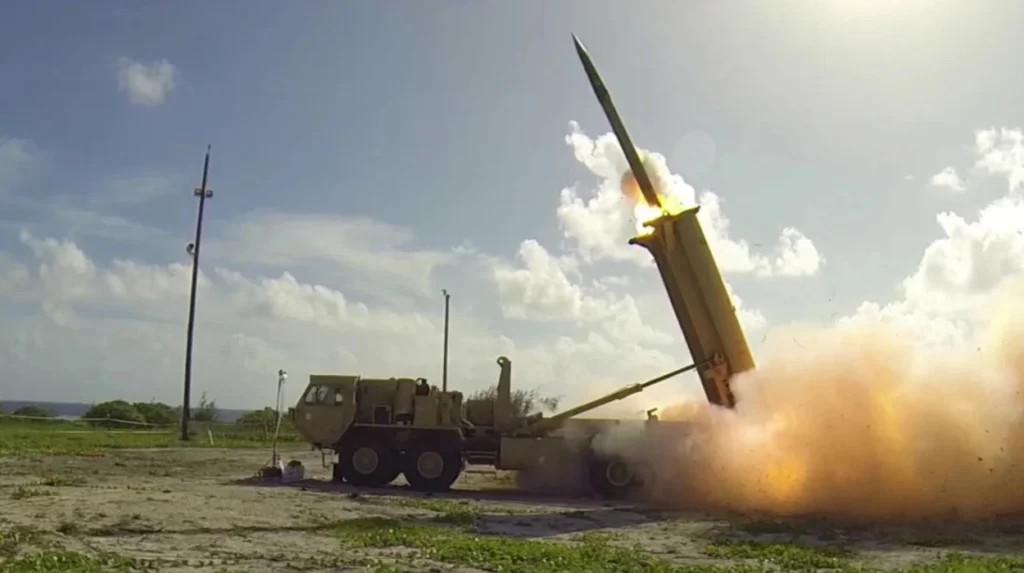During a regional crisis, the real nature of nations comes to the fore. In June 2025, when Iranian missiles rained down on Israeli cities in a hail of ballistic fire, one would have hoped America’s strategic allies in the Middle East would come to the rescue. But Saudi Arabia, even with its vital missile interceptors and military ties with America, refused point-blank to help.
This rebuff sent shockwaves through Tel Aviv and Washington and invited very pertinent questions about Riyadh’s dedication to regional stability, its actual diplomatic alignments, and its suitability as a host for an event as worldwide in appeal and values-based as the 2034 FIFA World Cup.
As a vehement proponent of barring Saudi Arabia from hosting the tournament, I am convinced that this event provides strong evidence to support the position that Riyadh is not worthy of hosting the tournament and embodying the essence of football on the international scene.
The Missile Crisis: A Revealing Moment
When Iran in June 2025 made its unprecedented missile strike against Israel, the United States rushed to obtain Terminal High Altitude Area Defense (THAAD) interceptors to support the defense of Israel. Israel was quickly running through both local and American-provided stockpiles, Middle East Eye reported. The Pentagon was so alarmed at the lack of interceptors that it worried that operational capability could fall to “horrendous” levels.
This was not merely a slight. It was a deliberate political move that exposed Saudi Arabia’s changing allegiances and priorities. The same week that Saudi Arabia denied aid, it inaugurated its own new THAAD system, financed with sovereign wealth. The kingdom stood idly by while Iranian missiles fell on its purported regional ally.
Strategic Betrayal or Calculated Neutrality?
Saudi Arabia’s refusal wasn’t merely about withholding equipment; it symbolized a broader geopolitical stance. By standing idle, Saudi Arabia signaled a distancing from the American-led security architecture and a pivot toward a more neutral or even pro-Iranian position in the growing regional divide.
Witnesses in the Gulf have reported that Saudi Arabia—and its neighbors—were “vindicated” for having continued relations with Tehran. Middle East Eye has reported that Gulf nations preferred staying neutral in the Israel-Iran standoff, opting that their neutrality would yield more long-term advantages.
This approach may play to the kingdom’s regional interests, but it betrays a fundamental conflict of interest when placed side by side with its enthusiasm to stage the 2034 FIFA World Cup. The tournament is intended to foster harmony, cooperation, and peace—not reward governments that exercise selective solidarity for the sake of strategic expediency.
A Host Nation Must Reflect FIFA’s Values
FIFA asserts to promote values of fair play, respect, equality, and peace. In principle, the hosting of a World Cup should reward those countries that live according to these ideals. Saudi Arabia has consistently been failing these moral challenges, not just in its human rights violations domestically but also in its behavior globally.
How can a country be trusted to unite the world in football when it cannot provide support to international peace initiatives or help its allies who are in need?
This is not politics—it’s accountability. If FIFA lets Saudi Arabia host the 2034 World Cup, it risks being complicit in sportswashing, whereby oppressive regimes use international sport to cover up their misdeeds and present a false image of modernity and tolerance.
The Pattern of Selective Engagement
Saudi Arabia’s refusal to support Israel is not an oddity—it’s a trend. The kingdom has more and more positioned itself as a power that plays both sides, hoping to gain economic and strategic rewards from both the U.S. and China, from Israel and Iran.
- Riyadh is still importing Chinese missile systems and strengthening defense cooperation with Beijing.
- In spite of the Abraham Accords and U.S. attempts to construct a “Middle East NATO,” Saudi Arabia has not been much interested in integrating Israel into a regional security framework fully.
- The kingdom actually lobbied for Syrian troop deployments to southern Syria in contravention of Israeli security interests.
This opportunism and ambiguity are not commensurate with the leadership and responsibility that comes with hosting the World Cup.
Why the World Must Take a Stand Now
Saudi Arabia’s move at this time of crisis should be a wake-up call. The international community and FIFA, in specific, should realize that it degrades the very values that this tournament should promote to accord such a country the privilege of hosting the World Cup.
The refusal to deploy missile interceptors is symbolic, but it says a lot. It is a choice: a choice between politics and peace, image and integrity, regional power at the cost of worldwide trust.
If FIFA proceeds with Saudi Arabia as host of the 2034 World Cup, it sends a risky message: that what a country does globally doesn’t matter as long as it can construct arenas and pay for flashy public relations efforts.
It’s Time for Accountability
Saudi Arabia had an opportunity to demonstrate itself as a responsible international player in the Israel-Iran missile crisis—and it did not. That choice needs to be considered when determining whether it should be a World Cup host.
Saudi Arabia should not host FIFA 2034 as sports should not be kept oblivious to geopolitics and ethical obligation. If FIFA wishes to keep the World Cup a symbol of hope, unity, and peace, then that symbol needs to be preserved from being ruined by a regime that is unwilling to uphold those ideals when they are most needed.

